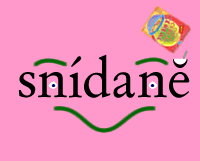Do you ever walk into a room and forget why you’re there? Or have you ever opened the fridge or a cupboard and couldn’t remember what you were looking for?
This is a common phenomenon known as the Doorway Effect or location updating effect and can occur when you’re thinking about or trying to remember too many things, get distracted, and particularly when you move from one location to another that differs significantly. This apparently primes our minds to receive something new. So if you want to avoid this effect, it’s best to keep whatever you need to remember at front of your mind.
This morning, for example, I put my laundry in the washing machine, then forgot to start it. I did remember later, but before then, I got distracted preparing my breakfast. It’s time to hang up the laundry now. I’ll be right back, unless I get distracted and start doing something else, which is quite likely.
Right, where was I? I did get distracted and did some lessons on Duolingo (2,600 days today, by the way), Anyway, sometimes I put bread in the toaster, or a pan on the cooker, and forget to turn them on. These memory lapses aren’t the result of going through doors into other rooms, or passing through portals, but they involve thinking and doing too many things and getting distracted.
I came up with an alternative name for this effect today – doorgetting, a portmanteau of door and forgetting, inspired by a video on TikTok by Jess Zefarris about Words for Things That Don’t Have names. These are also known as word fugitives, a term coined by Barbara Wallraff, an author and editor at The Atlantic Monthly, or sniglets – any word that doesn’t appear in the dictionary, but should – coined by American comedian Rich Hall. If they don’t enter into common usage, they are also known as occasionalisms, protologisms or nonce words.
An example she gives is serenquipity, for when you accidentally say something witty and quotable, or in other words, come up with a serendipitious quip. Another is pandephonium, for the confusion experienced when a phone rings and no one nearby is sure if it is theirs.
More on this phenomenon:
https://www.sciencealert.com/scientists-find-the-doorway-effect-could-be-real-but-only-in-overloaded-brains
https://www.bbc.com/future/article/20160307-why-does-walking-through-doorways-make-us-forget
https://www.scientificamerican.com/article/why-walking-through-doorway-makes-you-forget/
https://www.livescience.com/17132-forget-walked-room-doorways-blame-study-finds.html
Here’s a song I wrote about this some years ago called What Did I Come In Here For?:
What did I come in here for?
Something important I’m sure
Something to fetch or find
Oh what did I come in here for?
What did I come in here for?
I forgot as I came through the door
I cannot remember, I cannot recall
Oh what did I come in here for?
What did I come in here for?
This has happened at times before
I need a clue to get out of this stew
Oh what did I come in here for?
What did I come in here for?
What did I come in here for?
Just let me think and I’ll get it
Ah, that’s what I came in here for


